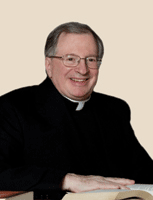La Sapienza was founded in 1303 by Pope Boniface VIII. In 1870, with the fall of the Papal States, it was re-opened as the public university of the city of Rome. Today it is the largest public university in Europe, with 138,000 students. The Vatican cancellation came after 67 faculty members signed a protest against Pope Benedict’s giving the concluding speech of the convocation on grounds that the pope is hostile to science. As evidence, the critics cited a 1990 address in which the then-Cardinal Ratzinger quoted the Austrian philosopher Paul Feyerabend, who argued that Galileo was wrong in believing he had discovered in empirical observation a rationalist method for the attainment of all truth. In most academic circles today, scholars acknowledge that different fields employ different methods and that these change over time. Even within a single field, investigators in one sub-field find the literature in others unintelligible. These observations hardly merit an anti-papal campaign.
The protesting scientists, however, approached the philosophy of science the way many outsiders approach fields in which they are not proficient, reacting to symbols (like the mere mention of Galileo), applying amateurish litmus tests and fanning into flames burnt-out ideological fires. Pope Benedict’s citation was not an endorsement. He cited Feyerabend as an example of the relativism of post-modern thought and characterized the philosopher’s judgment as “drastic” overreaching. Nonetheless, for a churchman, especially the former prefect of the Congregation for the Doctrine of the Faith to make a passing, critical mention of Galileo was a red flag to Italian academics.
The Vatican later released the pope’s intended text. Had the protesters bothered to read it, they would have found that Pope Benedict had endorsed academic freedom. He observed that today La Sapienza is “a public university with that autonomy...which must be bound exclusively to the authority of the truth.” “Surely,” he added, the pope “must not impose the truth on others in an authoritarian way.” He also offered soothing admissions of cognitive humility, admitting, for example, that “things handed down in practice by ecclesial authorities have been shown by history to be false, and today they confuse us.” At the same time, he affirmed his unflagging commitment to fulfill “his duty to keep the sensitivity to truth alive.”
I must confess that when Pope Benedict speaks abstractly about reason and truth rather than the Gospel, I get a little nervous myself. I am apprehensive that the Christ of faith is being displaced by the God of the philosophers. I fear as well that I am being presented with what the pope himself once called premature judgments cloaked in the mantle of reasonableness. I realize, however, that I am put on my guard not by the pope’s own measured phrases and pastoral discretion but by the bullying way that the pope’s self-anointed partisans abuse his authority with know-it-all sneering and snobbery.
The La Sapienza speech was an effort to articulate the pope’s relation to university life. How he envisages the role of the church and the pope in contributing to keeping alive sensitivity to truth reveals a thoroughly pastoral grasp of his mission. Faith should have a place at the symposium of reason, he argues, because “over the course of generations” the Christian way of life has yielded proof of “its reasonableness and its enduring significance.” “The history of the saints, the history of the humanism that grew up on the basis of the Christian faith,” he writes, “demonstrate the truth of this faith in its essential nucleus, thereby making it an example for public reason.” It is by this collective witness, he writes, that the church provides “a purifying force” for the interest-driven thinking that dominates postmodern secular society.








